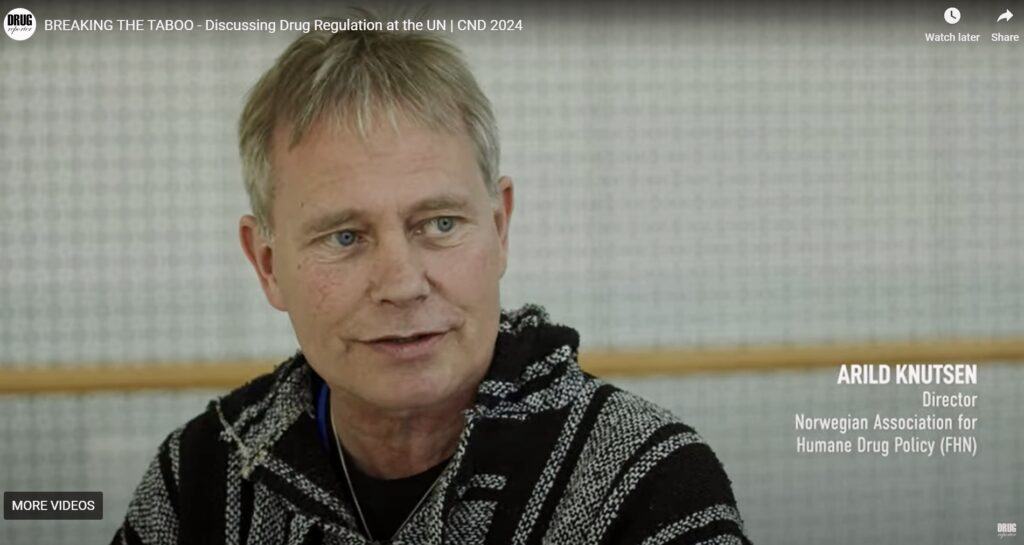
Drugreporter 04. april 2024: Breaking the Taboo – Discussing Drug Regulation at the UN, by Péter Sárosi.
In this short film, produced at the 67th UN Commission on Narcotic Drugs (CND) in Vienna, we give you an overview of the latest developments of drug policy reform across the globe.
The CND is always a great opportunity to catch up with drug policy and harm reduction activists from all parts of the world. We used this opportunity to interview participants about the latest developments, such as decriminalisation and, in case of Oregon, re-criminalisation, challenges of legal regulation of drugs in Europe and in Thailand, the impact of the ban of new psychoactive substances, the right of indigenous people to grow Coca, access to controlled medicines and many other issues.
The current international drug control system is “anachronistic and indolent” – said Gustavo Petro, the president of Colombia, in a speech addressing the CND this year.
He is not alone in this assessment. 62 countries supported a statement, initiated by Colombia, that calls for a review and reassessment of the international drug control system and recognises “the importance of harm reduction approaches, grounded in justice and human rights.”
The narrative is changing. For too many years, the CND was about “solving the world drug problem” – that is, to punish people who sell and use drugs, in the name of the dream of a drug-free world. But more and more countries challenge the notion of the “world drug problem”.
“There is no ‘world drug problem’,” said President Petro in his speech, “but a development problem. A question of existence. The denialism spirit that prevails now when the multilateral drug system is sinking, is forcing the countries to respond, in a kind of flexible interpretation of conventions.”
This “flexible interpretation” allows several countries to experiment with the alternatives of the punitive approach: decriminalisation and legal regulation models and innovative harm reduction programs.
This “flexible interpretation” allows several countries to experiment with the alternatives of the punitive approach: decriminalisation and legal regulation models and innovative harm reduction programs.
Reporter: Peter Sarosi
Filming and editing: Istvan Gabor Takacs
The experts interviewed in this film are:
Marie Nougier, International Drug Policy Consortium, IDPC
Niamh Eastwood, Release, UK
Theshia Naidoo, Drug Policy Alliance, USA
Arild Knutsen, The Association for Humane Drug Policy, Norway
Tom Blickman, Transnational Instute, TNI, Netherlands
Kitty Chokwan Chopaka, Thailand.
Cesar Aguilar Alcedo, Bolivia.
Daan van der Gouwe, Trimbos-instituut, Netherlands.
Shayla Schlossenberg, Release, UK.
Katherine Irene Pettus, PhD, International Association for Hospice & Palliative Care
Charity Monareng, Students for Sensible Drug Policy
The article and short video here.